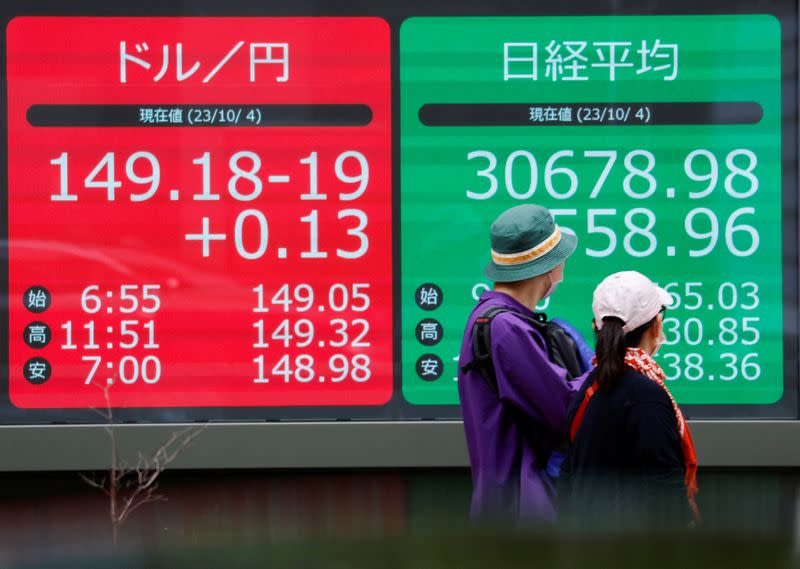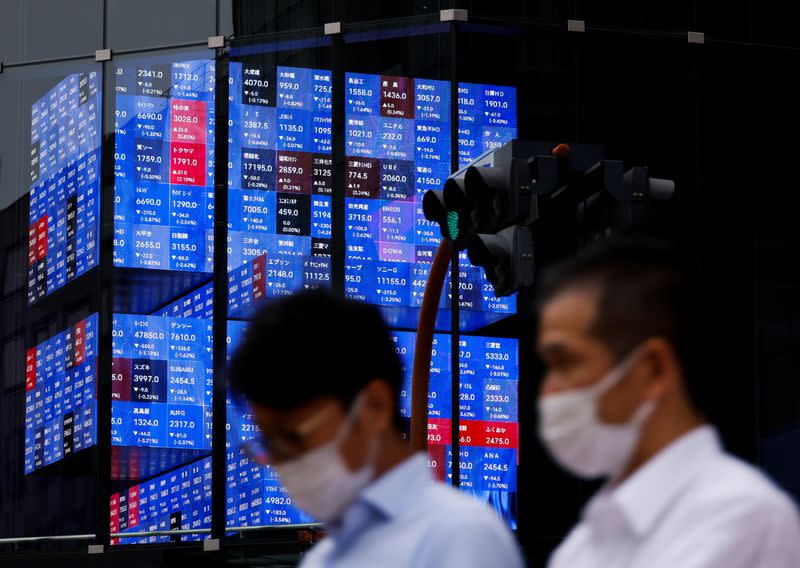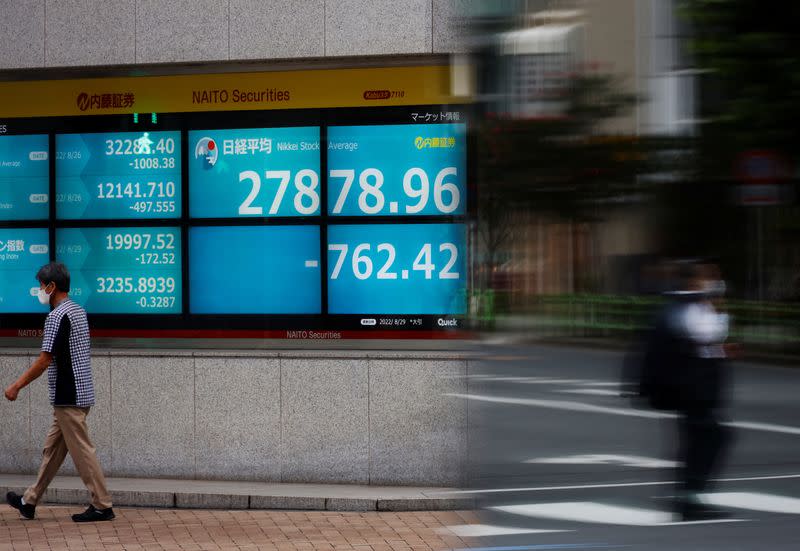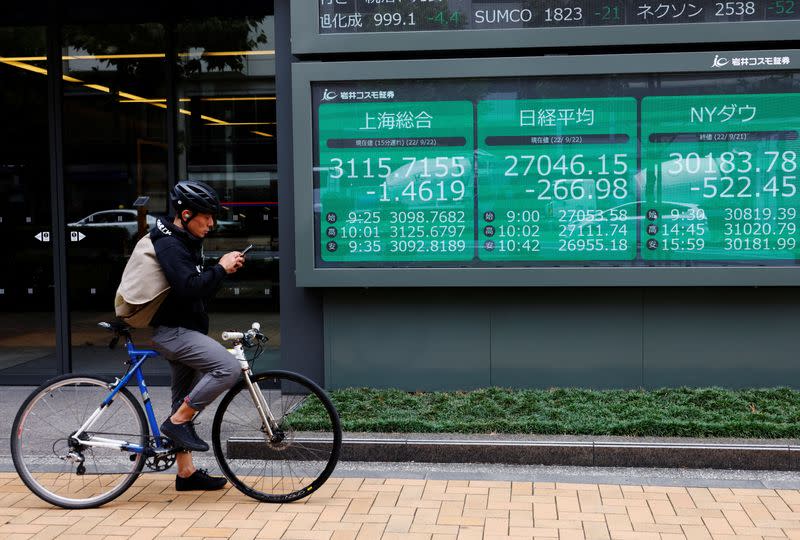By Junko Fujita and Brigid Riley
TOKYO (Reuters) - Japan's big tax break to incentivise its citizens to funnel some of the trillions of yen held in cash into stock market investments and boost the economy is succeeding, but only partially.
Under Prime Minister Fumio Kishida, the Nippon Individual Savings Account (NISA) programme -- which exempts retail investors from paying capital gains taxes on holdings of stocks -- is expanding significantly in scope from January.
And yet, investments under the nine-year-old scheme have historically gone primarily into U.S. stocks, and that Japanese affinity for U.S. stocks could mean Nasdaq is NISA's biggest winner.
Conversations with brokers and retail investors suggest Japan is having some success with NISA -- households are channeling more savings into stocks and taking more risk.
But Kishida was also hoping wealth will be better distributed and household savings will be recycled through companies. That remains wishful thinking.
Overseas stocks dominate the popular investment product rankings at online Japanese brokerages, such as the Monex Group and SBI Securities.
Ideally, Japanese investors would invest in the domestic stock market, inspiring foreign investors to also buy Japanese stocks and in turn broadening Japan's capital markets in what would be "a very happy scenario for the Kishida administration", said Takashi Hiroki, chief strategist at Monex.
"The goal of the Kishida administration is to increase household assets. At the end of the day, it's okay if Japanese household assets are increasing and increasing."
That they were investing abroad, however, was unfortunate for Japan's capital markets, he said.
In an aging society where retiring comfortably on a national pension seems increasingly uncertain, NISA has since 2014 been used by working residents and retirees hoping to grow their assets.
Japanese households hold more than 2.1 quadrillion yen ($14.16 trillion) of financial assets, yet their reluctance to take on risk has meant they keep more than half of it in cash, far more than in other developed economies.
Kishida wants to change that mindset in order to create a new, sustainable form of capitalism in the world's third-largest economy. The prime minister has led government efforts to expand NISA, increasing the total any person can hold under the scheme to 18 million yen from 2024 and making it permanently tax-exempt.
With these changes, the government aims to double in about five years the 33 trillion yen NISA investment balance at the end of June.




